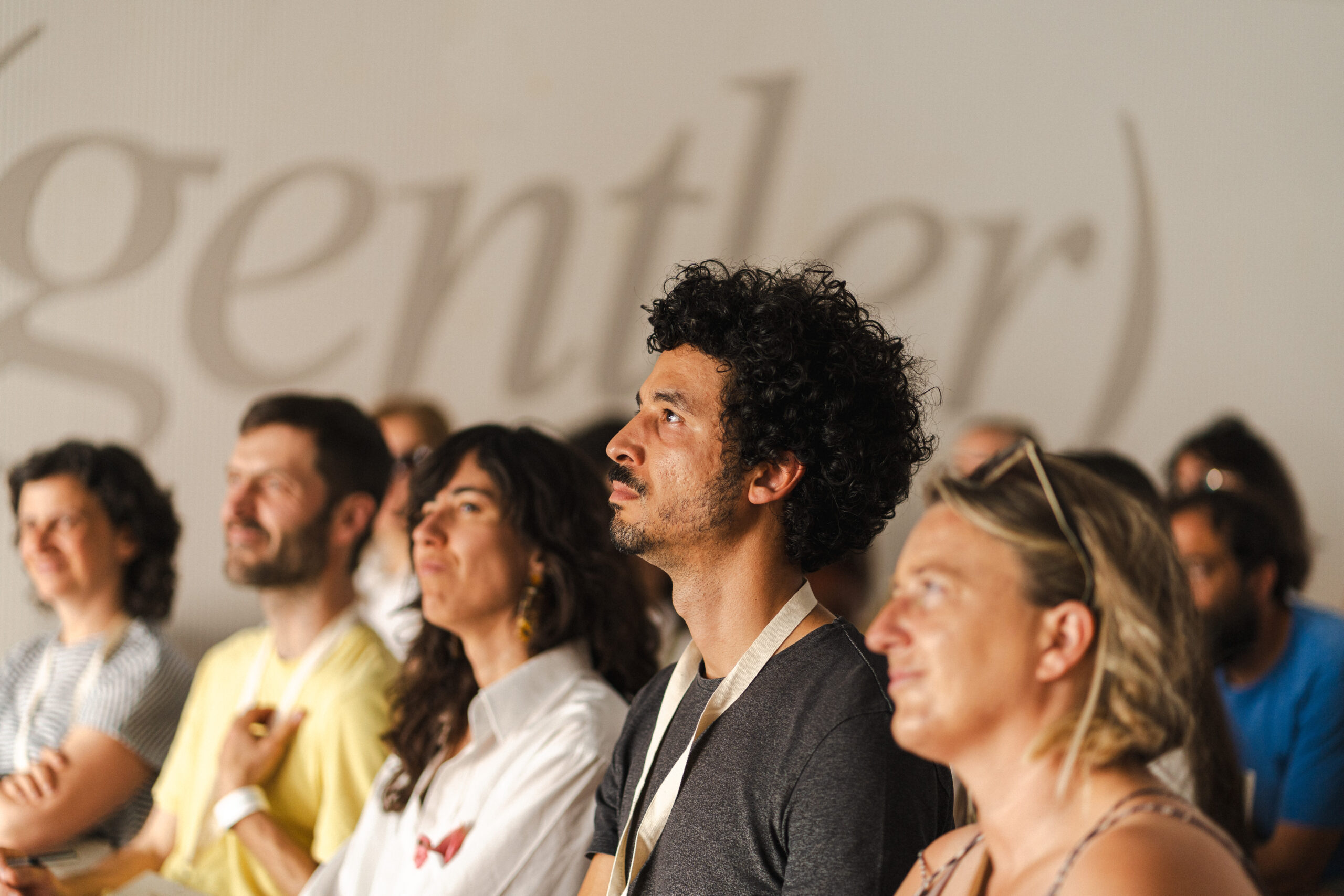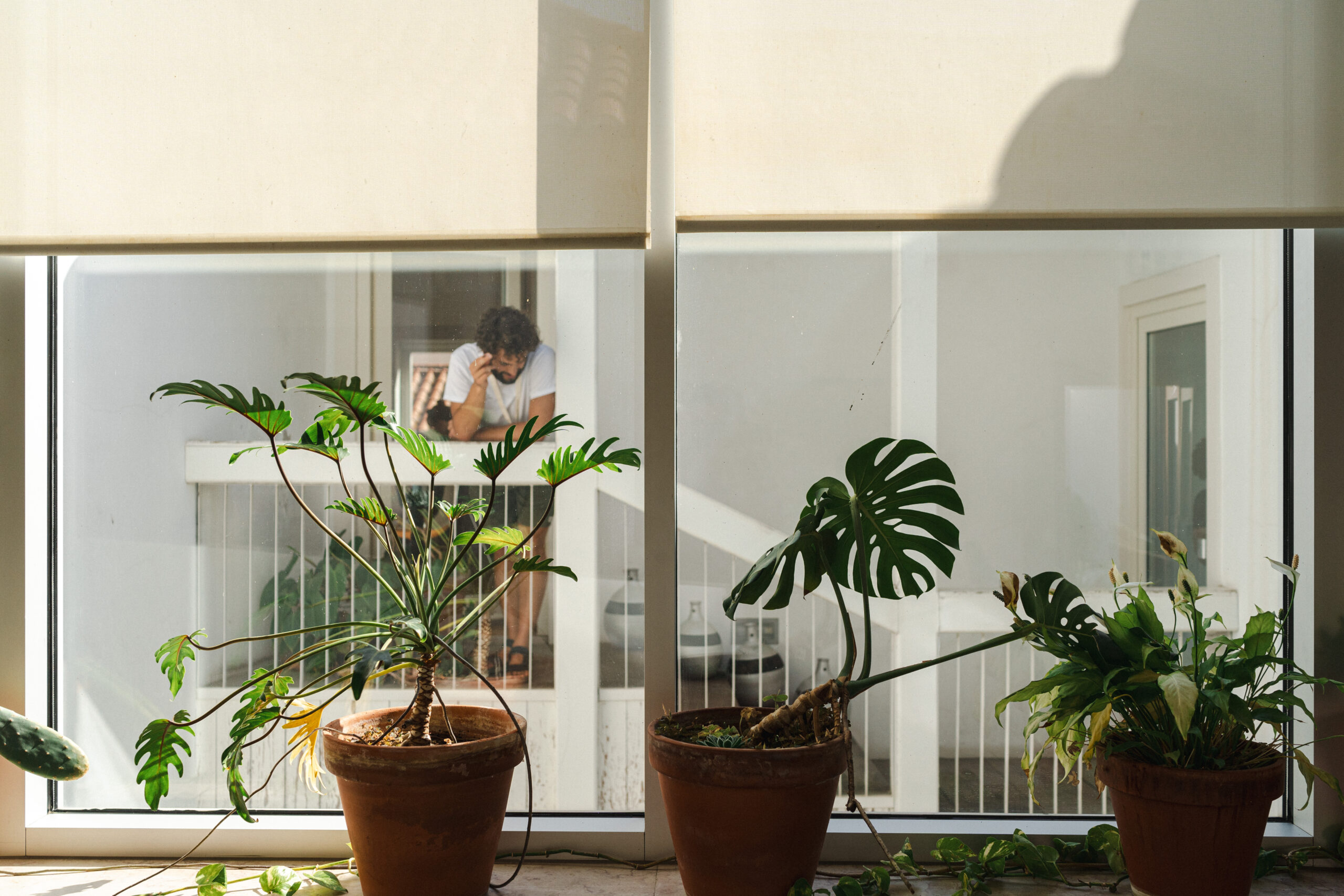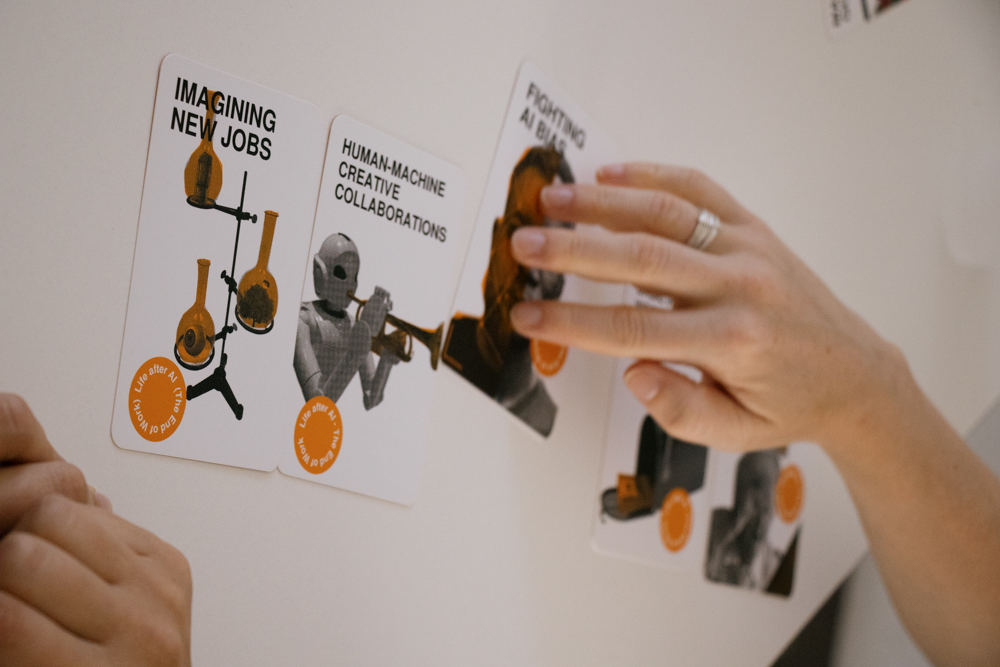On May 31st and June 1st, three team members of the Distributed Design Platform joined the Gentler Futures Festival in Lisbon.
During this two day event, more than 30 designers, artists, and several creative talents from the Distributed Design community and beyond, came together to share their design, research and architecture projects. The event brought together a crowd of curious minds and agents of change, all united by a common interest in shaping the future of making, design and education. Together we explored with a collaborative spirit what it means to design for tomorrow.
Created by André Trindade and Davide Onestini, the Gentler Futures Festival is a not-for-profit initiative by BY THE END OF MAY, a research and design studio exploring the roles of manufacturing and crafts in creating a (non-linear), (post-consumerism) and (anti-alienation) economy.
Located in the Mouraria Creative Hub, an innovation center in Lisbon’s historical quarter, the Gentler Futures Festival aims to pose questions, launch provocations and inspire new mindsets with a series of hands‒on workshops, talks, temporary exhibitions, screenings and live performances.
On the occasion of this event, the Distributed Design Platform team from Fab Lab Barcelona joined to give a talk and a free workshop on the next day.

A novel approach to design
In the half an hour talk, the Distributed Design team presented the Distributed Design Platform and its core values that are driving a novel approach to design, in turn inviting designers, makers, and creatives to innovate the field of design towards exploring and identifying futures values.
Exploring the future of education
The co-design workshop was introduced in a playful and imaginative session to discover and recognise “weak signals” and expand our minds towards possible new futures. During this three hour workshop, we explored the impact of design practice on our complex present through a practical and hands-on approach.
While learning about the Atlas of Weak Signals card game and its methodology, we explored various perspectives and reassess our collective understanding of weak signals. The session used future-thinking tools and a collaborative approach to critically reflect on the existing weak signals and co-design a new set of cards.
Nurturing Conscious Education
The process of ideation included, debate, conversation and imagination to project what could the future of education be like. Following a collective reflection, we were able to cluster weak signals under one theme: “Nurturing Conscious Education”. A numerous amount of weak signals were identified, amongst them were life-long education, decentralized education, non-hierarchical education, open and ecosystemic education, transgenerational education, interspecies education, perpetual education and nurturing inner awareness.
The outcomes of the workshop were captured in a poster representing the new set of cards, inviting the participants to further explore their new mindset; they presented their written ideas in the form of a visual collage.
Takeaways from the workshop
A sneak peek of the insights gathered are: education as a right, recognition of common spaces as educational spaces, question education as we know it today, collective thinking as an emancipation, education as a life-long practice.
-
Education as a right
All individuals, no matter their age, gender, and origins, deserve free access to learning throughout their lives. Open education, without the limitations of a book, has the freedom to be written by everyone at any point in time.
-
Recognition of common spaces as educational spaces
Learning can happen anywhere, and does not have to be limited to the walls of a classroom. Any shared space can be an opportunity for knowledge to be exchanged freely and respectfully.
-
Question education as we know it today
We need to critically examine traditional methods to ensure they effectively meet current needs and the content of the knowledge selected for teaching. We have so much to learn from cultures around the world – including diversity, equity, and inclusion.
-
Collective thinking as an emancipation
Working together to solve problems and share knowledge empowers individuals and communities. By sharing different perspectives of the world, we exchange knowledge and create a form of freedom in learning from one another.
-
Education as a life-long practice
Continuous learning is essential for personal growth and adapting to a changing world. We must learn from others first before we can learn within ourselves. Self-awareness, compassion and imagination are key to a new form of education, one healthy and accessible at all stages of life. Age is not a limit or an indication of how much knowledge one has to share, but rather an opportunity to learn more across generations.
Want to redefine the Atlas of Weak Signals?
Gain access to the full deck of cards here.

